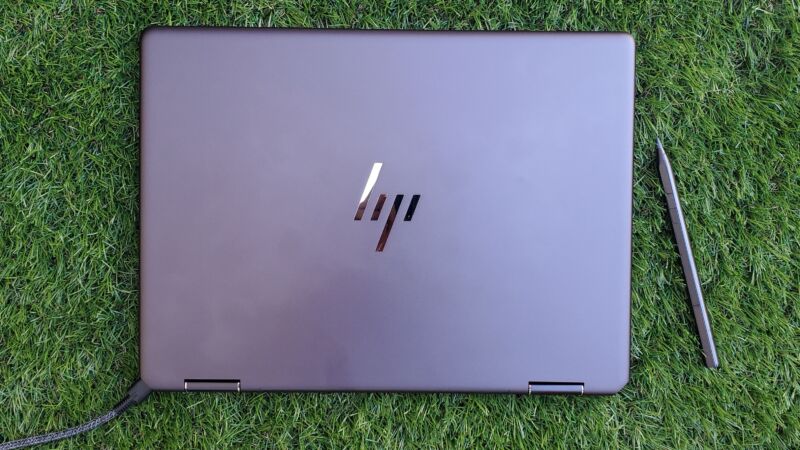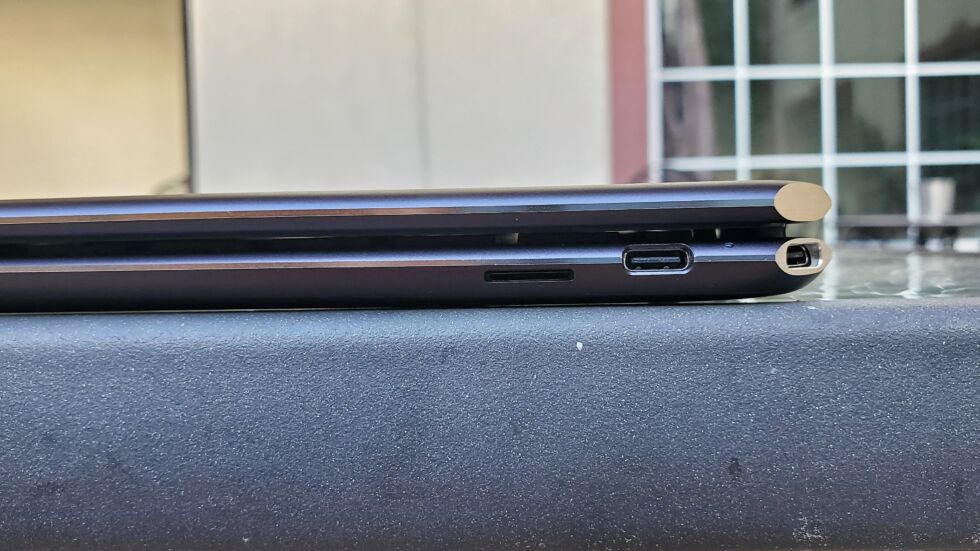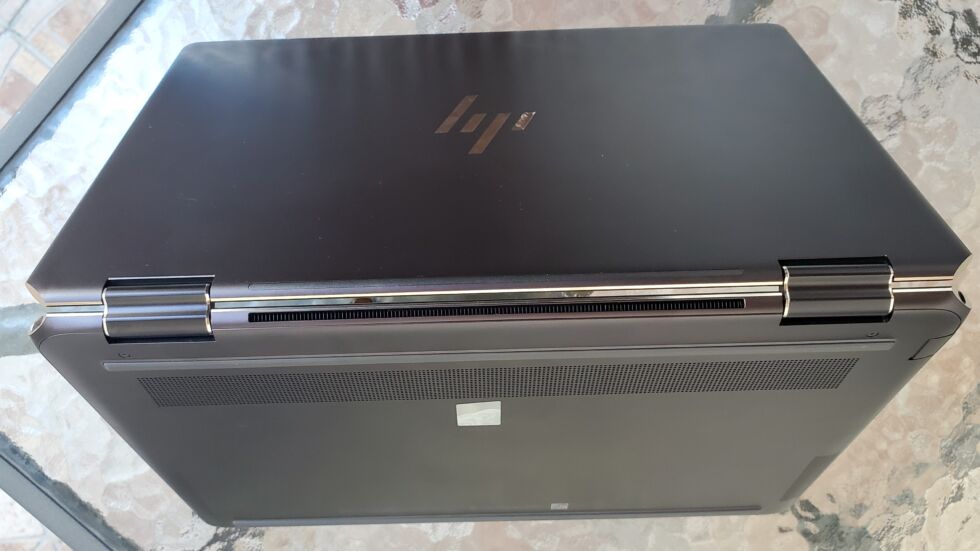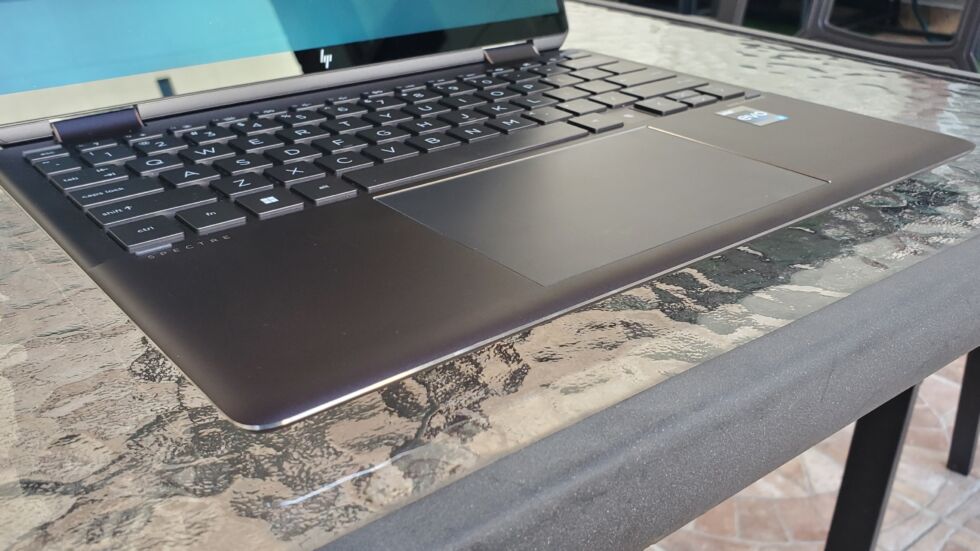
| Specs at a glance: HP Spectre x360 13.5-inch | |||
|---|---|---|---|
| Worst | Best | As reviewed | |
| Screen | 13.5-inch 1920×1280 IPS touchscreen | 13.5-inch 3000×2000 OLED touchscreen | |
| OS | Windows 11 Home | Windows 11 Pro | Windows 11 Home |
| CPU | Intel Core i5-1235U | Intel Core i7-1255U | |
| RAM | 8GB LPDDR4-4267 | 16GB LPDDR4-4267 | |
| Storage | 512GB NVMe PCIe 4.0 x4 SSD | 2TB NVMe PCIe 4.0 x4 SSD | 1TB NVMe PCIe 4.0 x4 SSD |
| GPU | Intel Iris Xe | ||
| Networking | Wi-Fi 6E, Bluetooth 5.2 | ||
| Ports | 2x USB-C (Thunderbolt 4), 1x USB-A (3.2 Gen 1), 1x 3.5 mm jack, 1x microSD card reader | ||
| Size | 11.73×8.68×0.67 inches (297.94×220.47×17.02 mm) |
||
| Weight | 3.02 pounds (1.37kg) | ||
| Battery | 66 Wh | ||
| Warranty | 1 year | ||
| Price (MSRP) | $1,100 | $1,760 | $1,610 |
| Other | Stylus, sleeve included | ||
HP’s 13.5-inch Spectre x360 has a little something for almost everyone. An ultralight build puts it a desirable class of convertibles with a frosted finish and flashy accents. A 3:2 screen stands taller than most and includes an OLED option that’s vivid yet natural looking. There are also clever design choices, like a chamfered edge with a charging port, light-up volume/mic mute/camera shutter keys, plus decent port selection.
The Spectre x360 13.5-inch gets an A+ in looks and scores high (but not perfectly) in design details. But it has some room to grow when it comes to productivity, especially when compared against other highly capable ultralights in its price range.
For those who insist on squeezing every ounce of performance out of a sub-1-inch-thick convertible, there are stronger competitors. But for the rest, the 2022 Spectre is near the top of its class.
Table of Contents
Winning design
HP’s Spectre lineup continues to feature some of the most attractive ultralights around, even if they are mildly less striking this year. The Nightfall Black color of my review unit includes accents so pale that they look more silver than the “brass” that HP describes. A thin, reflective, silver strip runs around the lid and deck, creating a layered effect when viewing the shut PC from a side. Oddly, you can even see a hint of the keyboard when viewing the closed laptop from the left or right side, so I’m a little more concerned about dust getting inside the PC when closed than I’d typically be.

Visually, the hinges pop a bit less than last year’s model, which included contrasting colors across the entire spine and hinges. But, more importantly, this year’s hinge keeps the screen reliably in place no matter how far I bend the lid back.

Plus, the aluminum lid was harder to bend and felt denser than that of most other ultralight laptops I’ve tested lately.
That paired well with an equally solid deck; however, the deck’s sloped edges occasionally made my wrists slide when I typed. This may have led me to more frequently bump into the touchpad when typing, causing abrupt, distracting interferences in my workflow.

https://arstechnica.com/?p=1871379

